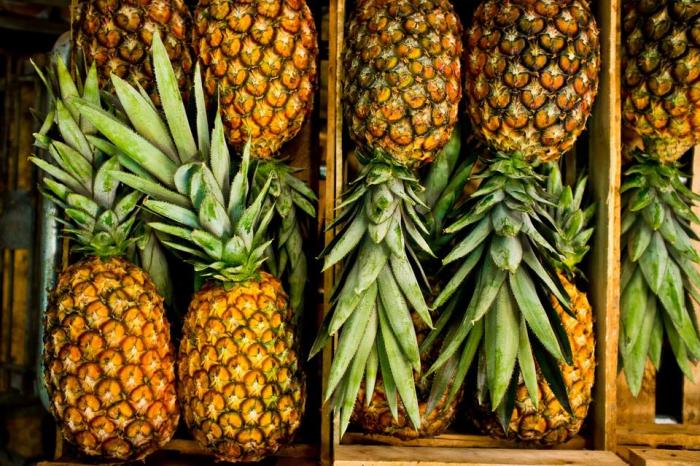Breastfeeding is a crucial time for both mothers and their babies. What you eat can influence your health and your milk quality. Many new mothers wonder if they can eat certain foods, including pineapple. This article discusses whether it’s safe to eat pineapple while breastfeeding and its potential benefits and risks.
Nutritional Benefits of Pineapple
Pineapple is a tropical fruit packed with nutrients. It is low in calories but high in vitamins and minerals.
Vitamins and Minerals
Pineapple is rich in vitamin C. This vitamin is essential for a healthy immune system. It also helps in the absorption of iron, which is important for new mothers.
In addition to vitamin C, pineapple contains manganese. Manganese supports bone health and metabolism. It is also beneficial for the baby’s development during breastfeeding.
Fiber Content
Pineapple is a good source of dietary fiber. Fiber helps maintain digestive health. It can prevent constipation, which is a common issue for new mothers. A healthy digestive system is essential for overall well-being during the breastfeeding period.
Digestive Enzymes in Pineapple
One of the unique features of pineapple is its digestive enzymes, especially bromelain. Bromelain helps break down proteins. This can improve digestion and reduce bloating.
Benefits for New Mothers
New mothers may experience digestive issues after childbirth. Eating pineapple may help alleviate some of these problems. The bromelain in pineapple can promote better digestion, making it easier for mothers to process their food.
Allergies and Sensitivities
While pineapple is generally safe, some individuals may have allergies or sensitivities to it. If you have a history of allergies to other fruits, be cautious when introducing pineapple into your diet.
Signs of Allergies in Babies
If you eat pineapple while breastfeeding, watch for signs of allergies in your baby. Symptoms may include skin rashes, fussiness, or digestive issues. If you notice any of these signs, consult your pediatrician. It may be wise to reduce or eliminate pineapple from your diet.
Potential Risks of Eating Pineapple
Although pineapple has many benefits, there are some potential risks to consider.
High Acidity
Pineapple is highly acidic. For some people, consuming acidic foods can lead to heartburn or acid reflux. If you experience these symptoms after eating pineapple, it may be best to limit your intake.
Overconsumption
While pineapple is healthy, moderation is key. Eating too much pineapple can lead to digestive discomfort. Excessive consumption can also increase the risk of diarrhea due to its high fiber content.
How to Incorporate Pineapple into Your Diet
If you want to enjoy pineapple while breastfeeding, consider how to incorporate it into your meals.
Fresh Pineapple
Fresh pineapple is the best option. It retains most of its nutrients and enzymes. You can enjoy fresh pineapple slices as a snack or add them to smoothies for a nutritious boost.
Cooked Pineapple
Cooking pineapple can reduce its acidity. Grilled or baked pineapple can be a delicious addition to dishes like chicken or fish. Cooking also enhances its natural sweetness.
Pineapple in Salads
Adding pineapple to salads is another tasty option. It pairs well with greens, nuts, and other fruits. The sweetness of pineapple can balance the flavors in a salad, making it more enjoyable.
Other Fruits to Consider
While pineapple is nutritious, consider including a variety of fruits in your diet.
Berries
Berries such as blueberries, strawberries, and raspberries are rich in antioxidants. They are also lower in sugar and high in fiber.
Bananas
Bananas are another excellent choice. They are easy to digest and provide potassium, which is important for muscle function and overall health.
Citrus Fruits
Citrus fruits like oranges and grapefruits offer vitamin C and hydration. They can be refreshing options during breastfeeding.
Hydration and Breastfeeding
Staying hydrated is essential during breastfeeding. Pineapple can contribute to your fluid intake. It has a high water content, which helps keep you hydrated.
Water Intake
In addition to consuming fruits, make sure to drink plenty of water. Aim for at least 8-10 glasses of water per day. Proper hydration supports milk production and helps you feel better overall.
Balance in Your Diet
Eating a balanced diet is key while breastfeeding. Focus on a variety of foods to ensure you receive all the nutrients you need.
Include Proteins and Whole Grains
Make sure to include lean proteins like chicken, fish, beans, and nuts. Whole grains like brown rice, quinoa, and whole-grain bread provide energy and fiber.
Variety of Vegetables
Don’t forget to eat a variety of vegetables. Leafy greens, carrots, and bell peppers are all nutritious choices. They provide vitamins, minerals, and fiber that are essential for your health and your baby’s.
See also: Can I Eat Seafood While Breastfeeding
Conclusion
In conclusion, eating pineapple while breastfeeding can be safe and beneficial. It is packed with vitamins, minerals, and digestive enzymes that can support both mother and baby. However, moderation is important.
Be mindful of any potential allergies or sensitivities. If you experience digestive issues or your baby shows signs of discomfort, consider reducing your intake.
Pineapple can be enjoyed in various forms, from fresh slices to cooked dishes. Including a variety of fruits and vegetables in your diet will help ensure you get a wide range of nutrients.
With careful planning and observation, you can enjoy pineapple and other delicious foods while breastfeeding. This period is special, and nourishing yourself with healthy foods will benefit both you and your baby. Embrace this journey with confidence and enjoy the many flavors it has to offer!
Related topics:


